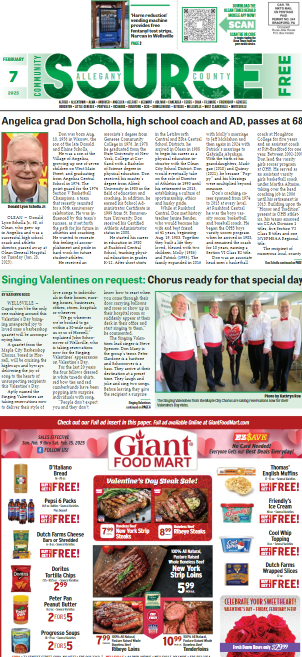African heartbeat
Something’s absent since I’ve returned from Africa. My luggage wasn’t lost and though there was a temporary mixup in Paris where the baggage people couldn’t tell a gun case from a suitcase, things eventually straightened out.
Miraculously, I hadn’t misplaced anything on the aircraft during the long flights to Amsterdam, Johannesburg or Paris, either, though the stewardess chased me down once, returning my sunglasses that had slipped out of my cargo pocket.
No, whatever’s absent isn’t material; what could it be?
Perhaps it’s the daily sight of dainty, delicate impala with their smooth, copper hides that switch abruptly in a straight line to pure white halfway down their sides. Their thin legs have a black patch just above their hooves and above their large liquid black eyes lies a white patch, like an exaggerated eyebrow. Their ribbed horns curve up and back, sweeping gracefully upward to sharp points. Such a handsome animal. They’re acrobats, perpetually on high alert, springing, exploding skyward as they play or run, their legs seemingly containing powerful, coiled springs, reveling in their speed and grace.
Then, of course, there’s the rangy wildebeest, the savannah clowns. Their wide horns, upturning tips and wide bosses closely resemble those of a cape buffalo, but their shaggy heads, big ears and long, downward turning nose give them a slightly comical air. Before running they kick their rear ends up in the air followed immediately by a upward jump of shoulders and head, a bucking motion, a rollicking display that always made my daughter and I laugh out loud.
Then they speed off in their distinctive gate, a rocking up and down gallop. For some reason the herd loves to parallel your vehicle, putting on a spurt of speed until they draw ahead of you, then turn sharply and thunder across the dirt track in a cloud of dust. Why they do this is beyond me unless they like the race itself or suddenly the far side of the road seems more attractive than the previous. They grunt often, keeping in touch in the thick bush and as a warning if danger draws near.
Despite their comical appearance they’re wary and difficult to hunt, having absolutely zero curiosity. You stop; they run.
I especially miss the magnificent kudu, king of the antelope. Blue-grey on top, as clean, neat and sweet an animal as you can imagine, whose white-barred sides, heavy mane and thick, swelling neck coupled with the chevroned face markings that set apart their royalty. But it’s the regal sweep of those breathtaking, heavy based, double curling, mahogany-colored horns, rising ever upward to end in beautiful polished ivory tips that completes the picture, crowning his noble head, proclaiming his majesty.
I’ll never forget the first time one of these magnificent creatures trotted across the bush track. He was only 30 yards away, as big as an elk, his head tilted back, those huge twisting horns over 4 feet long. The last rays of the sun lit him up in a golden glow. The majesty of this creature simply overwhelmed me, I stared after him transfixed, in disbelief. What presence! An aura of dignity and grandeur surrounded him like no other antelope. So strong was that fleeting presence I felt it an honor and privilege simply to have seen him. Yes, kudu are special indeed.
It’s not just the animals I miss, it’s the spirit of this dry, thorn-strewn land where in winter water is scarce, the parched land waiting patiently for the life-reviving summer rains when the twisted, dry limbs will burst into leaf and flower overnight. Early in the morning when the sun peeks above the savannah, lighting up the landscape, it was soothingly inspiring to gaze across the bush and isolated trees as countless birds sang and the peace of the morning seeped deep into your soul.
How was it possible that such seemingly inhospitable land could harbor the incredible diversity of wildlife it does? It was miraculous and magical, humbling and inspiring all at the same time. Often Julie and I would stand for a few minutes just looking and feeling, speaking seldom for the mornings held the solemnity of church.
As the night sucks the last wisps of light from the sky and the growing chill has you reaching for your jacket, the glowing mopane fire draws you into its embrace and the drink in your hand becomes magically medicinal — healing, washing the red dust from your throat. Far, far off a lion’s roar and you shrink inside, as you should.
Yes, there’s a large chunk of me back in South Africa where tall, red termite mounds sprout up and wait-a-bit and white thorns lie in wait. Some of my soul still stands by the Limpopo River at dusk our last evening, the water silver-white, gleaming, flowing smoothly, except for the deep V made by a swimming croc.
A trophy bushbuck appeared then but I never raised the rifle, this moment wasn’t about hunting, it was about being a part of something far greater than myself. That part of me chafes at city life — deadlines, taxes and stoplights. Here there’s no gleaming mopane wood fires, no bat-eared fox yapping at the stars, the kudu’s explosive bark or the eerie growls and insane, shrieking squeals of hyena.
I simply must return and ransom back what I’m empty without.







